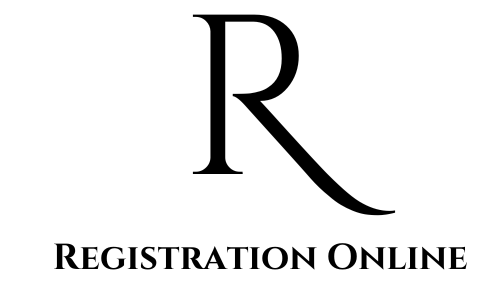Online Newspaper Registration in 2024 a Complete Walkthrough

The digital age has transformed how we consume and share news. With the rise of online platforms, newspapers have shifted from print to digital, making news more accessible than ever before. Starting an online newspaper registration in 2024 presents immense opportunities, from reaching global audiences to reducing the costs associated with traditional publishing.
However, while the digital space may seem limitless, legal regulations still apply. Registering your online newspaper is an essential step in ensuring that your platform operates within legal boundaries. In 2024, this process is more important than ever, as governments and regulatory bodies are increasing oversight of online publications to ensure compliance with media laws and to protect intellectual property rights.
Registering your online newspaper provides significant benefits. First and foremost, it establishes your newspaper as a credible and recognized entity. This legal recognition is crucial for building trust with your readers, attracting advertisers, and forging partnerships. Secondly, registration safeguards your intellectual property, ensuring that your newspaper’s name, logo, and content are protected from infringement. Finally, being legally registered enables you to explore various monetization opportunities, including advertising revenue, paid subscriptions, and eligibility for digital platforms like Google News and Facebook News.
2. Why You Need to Register an Online Newspaper

Launching an online newspaper can be an exciting venture, but it’s crucial to ensure that your platform operates within legal frameworks. Registering your online newspaper comes with numerous advantages that help secure your brand, protect your content, and open up avenues for growth.
Legal Recognition of Your Newspaper as a Valid Entity
One of the primary reasons to register your online newspaper is to gain legal recognition. Without official registration, your platform is not considered a legitimate business entity, which could lead to complications down the road. By registering, you formalize your operation, giving it the same legal standing as a traditional newspaper. This status is essential for building trust with your audience, media partners, and advertisers.
Protection of Intellectual Property and Brand
Your newspaper’s name, logo, and content are valuable assets. Registering your online newspaper ensures that these elements are legally protected under intellectual property laws. This protection helps prevent others from using your name or copying your content, thus maintaining the uniqueness and identity of your brand. In 2024, digital theft and unauthorized use of content are on the rise, making intellectual property protection even more critical.
Eligibility for Advertising Revenue and Partnerships
Another significant benefit of registration is access to advertising opportunities and strategic partnerships. Many companies, including Google News, Facebook News, and other major advertisers, require news platforms to be registered before entering into advertising agreements. Additionally, government grants and journalism funds may only be available to legally registered publications, providing further growth opportunities.
Avoiding Penalties and Ensuring Freedom of Expression
Operating an unregistered online newspaper can expose you to fines, penalties, or even shutdowns by regulatory authorities. In many countries, media outlets are required to comply with press laws and registration procedures to ensure they are not violating any regulations. By registering, you also protect your right to free speech and expression within the boundaries of the law, allowing you to publish without fear of legal retribution.
3. Steps for Online Newspaper Registration in 2024
To legally establish and protect your online newspaper, you’ll need to follow a set of key steps. This section outlines each critical phase to help you navigate the registration process in 2024.
Step 1: Choose a Unique Newspaper Name
Selecting a unique and memorable name is the first step in launching your online newspaper. A unique name is vital for creating a distinct identity and avoiding legal conflicts with existing publications.
- Importance of a Unique Name: If your name is too similar to another registered publication, it could lead to trademark disputes or confusion among readers.
- How to Check Name Availability: Use online databases, such as government business name search tools or domain registries, to ensure that your chosen name is available and hasn’t been claimed.
Step 2: Decide on the Legal Structure
Your newspaper needs a formal legal structure. The most common options are sole proprietorship, partnership, or limited company. The legal structure you choose will impact your tax obligations, liability, and management.
- Sole Proprietorship: Easy to set up but offers no liability protection.
- Partnership: Useful for collaborating with others but requires clear agreements on roles and revenue sharing.
- Company: Provides liability protection, which is crucial if you plan to scale your business and hire employees.
- Benefits: A company structure can also simplify tax registration and make it easier to attract investors or partners.
Step 3: Register Your Domain
An online newspaper needs a domain name that is easy to remember and reflects the essence of your publication.
- Tips for Choosing a Domain Name: Ensure the domain is short, relevant to your newspaper, and ideally includes keywords related to news or your target audience.
- Domain Registration Process: Use trusted platforms like GoDaddy, Namecheap, or Google Domains to register your chosen domain. Many domain registration platforms offer tools to check the availability of names.
Step 4: Fulfill Regulatory Requirements
Every country has specific regulations governing the registration of newspapers, both print and digital.
- Permits and Approvals: This may include registering with press information departments, adhering to local media laws, and obtaining copyright or publishing licenses.
- Regional or Country-Specific Processes: For example, in Pakistan, you’ll need approval from the Press Information Department (PID). Research the requirements of your country to ensure compliance with all relevant laws.
Step 5: Trademark Your Newspaper Name and Logo
Trademarking your newspaper’s name and logo is crucial for protecting your brand identity.
- Importance of Trademark Protection: A trademark ensures that no other entity can legally use your newspaper’s name or logo without your permission.
- Registering a Trademark in 2024: Many countries offer online trademark registration portals. In the U.S., for example, you can apply through the USPTO (United States Patent and Trademark Office). In other countries, similar offices provide digital registration services.
Step 6: Apply for an ISSN (International Standard Serial Number)
An ISSN is a unique identifier assigned to serial publications like newspapers.
- What is an ISSN?: The ISSN helps distinguish your online newspaper from others and is necessary for library indexing, databases, and publication tracking.
- Steps to Apply for an ISSN: In 2024, you can apply for an ISSN through your country’s national ISSN center or relevant library authority. Many nations have streamlined online applications.
Step 7: Complete the Tax Registration Process
To avoid legal issues and qualify for certain benefits, registering your newspaper for tax purposes is a must.
- Why Tax Registration Matters: Depending on your country, your online newspaper may be subject to sales tax, VAT, or GST. You will also need a tax ID to open a business bank account or file corporate taxes.
- How to Obtain a Tax Number: Most countries offer online portals where businesses can register for a tax identification number (TIN) or VAT/GST number. Ensure that you follow local tax guidelines to avoid penalties.
4. Digital Compliance and Security in 2024

In the fast-evolving digital landscape, ensuring your online newspaper is both compliant with legal standards and secure from cyber threats is more critical than ever. In 2024, governments and regulatory bodies are intensifying efforts to protect user data and ensure that online platforms, including news websites, comply with strict privacy regulations. Let’s explore the key areas of digital compliance and security you need to consider for your online newspaper.
Importance of Data Protection and Privacy Laws
Data is at the heart of any online business, including online newspapers. From collecting email subscriptions to handling user comments, your website interacts with personal data. Protecting this data not only builds trust with your readers but is also a legal requirement in many countries.
- Why It Matters: Data breaches can damage your reputation and lead to hefty fines from regulatory authorities. Even small newspapers must adhere to laws like GDPR (General Data Protection Regulation) in Europe or CCPA (California Consumer Privacy Act) in the U.S.
- Best Practices: Implement data encryption, ensure secure data storage, and create transparent privacy policies that inform users how their data is collected, used, and stored.
Securing Your Website with an SSL Certificate
One of the simplest but most important steps in securing your online newspaper is to install an SSL (Secure Sockets Layer) certificate. An SSL certificate encrypts the data transferred between your website and your readers, preventing unauthorized access.
- What is an SSL Certificate?: An SSL certificate is a digital certificate that authenticates the identity of your website and ensures that any data passed between a user’s browser and your server is encrypted.
- Why It’s Crucial: In addition to boosting your site’s security, an SSL certificate is now a requirement for ranking well on search engines like Google. Browsers mark websites without SSL as “Not Secure,” which can scare away potential readers.
- How to Obtain SSL: Most hosting providers offer SSL certificates as part of their packages, or you can obtain one from trusted providers like Let’s Encrypt or Cloudflare.
Compliance with GDPR, CCPA, and Other Relevant Laws
Regulatory frameworks like GDPR and CCPA are designed to protect users’ personal data and give them more control over how their information is handled. Even if your online newspaper is not based in the EU or California, these laws apply if you have readers from these regions.
- GDPR (General Data Protection Regulation): This European law requires you to obtain user consent before collecting personal data and provide clear options for users to control their data. Non-compliance can lead to significant fines.
- CCPA (California Consumer Privacy Act): The CCPA grants users in California the right to know what personal information is being collected and how it’s used. Users can also request that their data be deleted or opt out of data sharing.
- Other Laws: Depending on your location and readership, you may need to comply with other regional privacy laws. For instance, Brazil has the LGPD, while Canada enforces PIPEDA.
How to Stay Compliant
- Data Consent: Use cookie banners to notify users of data collection and obtain explicit consent.
- Privacy Policies: Draft a clear and concise privacy policy that outlines how user data is processed, stored, and shared. This should be easily accessible on your website.
- User Rights: Ensure that users can request access to their data, modify or delete their information, and opt-out of data collection or sharing.
5. Monetization and Growth Opportunities for Registered Newspapers

Registering your online newspaper does more than just legalize your operation—it also unlocks numerous monetization and growth opportunities. Once your newspaper is officially recognized, you can access revenue streams, form strategic partnerships, and tap into various funding opportunities that would otherwise be out of reach.
How Registration Opens Doors for Partnerships, Sponsorships, and Advertising
One of the key benefits of registering your online newspaper is the legitimacy it brings to your brand. Advertisers, sponsors, and partners are far more likely to collaborate with a legally registered entity, as it demonstrates professionalism and adherence to legal and ethical standards.
- Partnerships and Sponsorships: Being a registered newspaper allows you to approach brands for sponsorship deals or content partnerships. Companies prefer to work with established, legitimate media outlets that can provide transparency and meet regulatory requirements.
- Advertising Revenue: Registration makes it easier to join advertising networks such as Google AdSense or programmatic advertising platforms that require businesses to be legitimate entities. These networks help you monetize your content through targeted ads, creating a steady stream of income based on traffic.
- Local and Global Brands: Registered newspapers can also attract local and global brands looking to advertise their products or services to a niche audience. By positioning your newspaper as an official platform, you increase its value to advertisers.
Opportunities to Apply for Grants, Government Programs, or Media Awards
Many governments, non-profit organizations, and media institutions offer financial support, grants, and awards for journalism projects. However, these opportunities are often restricted to legally registered media outlets.
- Government Grants: Many governments have programs designed to support local journalism, digital media projects, or independent news outlets. Registered newspapers can apply for such grants, which may help with operational costs, equipment, or content creation.
- Non-Profit and NGO Support: Organizations that promote freedom of the press or independent journalism frequently provide grants to registered media outlets. For example, entities like the Pulitzer Center or the International Center for Journalists (ICFJ) offer funding to news platforms that are committed to reporting on important global issues.
- Media Awards: Registered newspapers are also eligible to apply for prestigious journalism awards, which not only boost credibility but often come with monetary prizes or recognition that can elevate the newspaper’s reputation.
Access to Platforms Like Google News or Facebook News
Legally registered newspapers can take advantage of major digital platforms like Google News and Facebook News, which prioritize and promote recognized news sources.
- Google News: By registering your newspaper, you can apply to become a recognized source on Google News. This enables your content to reach a broader audience through Google’s news aggregator, significantly increasing your traffic and visibility. Additionally, Google News prioritizes trusted, verified sources, which benefits registered newspapers.
- Facebook News: Facebook’s dedicated news tab features curated articles from verified and legitimate news outlets. By registering your newspaper, you can become eligible to appear on Facebook News, giving you access to millions of potential readers. This exposure can increase your audience size and open doors to monetization through Facebook’s ad programs.
Diversifying Revenue Streams
- Subscriptions and Paywalls: Once your newspaper is registered and well-established, you can implement subscription models or paywalls to generate direct revenue from your readers.
- Crowdfunding and Donations: Registered newspapers can also run crowdfunding campaigns or accept donations through platforms like Patreon, especially if they focus on independent or investigative journalism.
- Affiliate Marketing: Leverage affiliate marketing by promoting relevant products or services to your audience in exchange for a commission. Registered entities have more credibility when partnering with affiliate networks.
6. Common Challenges and How to Overcome Them

Starting and running an online newspaper can be a rewarding venture, but it comes with its own set of challenges. From navigating regulatory complexities to managing finances and maintaining journalistic integrity, here are some common hurdles you may face and tips for overcoming them.
Navigating Complex Regulations in Different Countries
One of the most significant challenges for online newspaper publishers is the variation in media regulations across different countries. While some nations have clear, streamlined processes for registering digital media, others have more complicated legal frameworks that can be difficult to navigate.
- Challenge: Each country has its own press laws, content restrictions, and data protection regulations (such as GDPR in Europe or CCPA in the U.S.). Non-compliance can result in penalties or even bans on your website.
- Solution: Research the media laws applicable to your country or any country where you have a significant audience. Consulting a media law expert or lawyer specializing in digital publishing can also help you ensure full compliance with local and international laws. Online tools and legal guides provided by government portals can also streamline the process of understanding these requirements.
Financial Challenges and Funding Options for New Newspapers
Launching an online newspaper often requires an initial investment for website design, content creation, marketing, and legal fees. Generating revenue might take time, and securing financial resources can be difficult for new publishers.
- Challenge: Many new newspapers struggle with limited capital, especially in the early stages when advertising and subscriptions may not yet be bringing in sufficient income.
- Solution: Explore funding options such as:
- Government and NGO Grants: Apply for journalism or media startup grants from government programs, non-profits, and global organizations that support independent media.
- Crowdfunding: Platforms like Kickstarter, Indiegogo, or Patreon allow you to raise funds from your audience in exchange for exclusive content or early access to articles.
- Revenue Diversification: Consider monetizing through affiliate marketing, sponsorships, and paywalls, as well as building partnerships that provide financial support. Seeking early-stage investors or forming collaborations with established media outlets can also help in securing initial capital.
Maintaining Journalistic Standards While Managing Legalities
Balancing high journalistic standards with the need to comply with media laws and avoid legal issues can be tricky, especially for smaller, independent newspapers. Focusing solely on legal protection might make it harder to deliver unbiased, high-quality content.
- Challenge: Laws such as defamation, copyright, and censorship regulations can restrict the type of content you publish, limiting the freedom of expression that many independent newspapers value.
- Solution:
- Editorial Policies: Establish clear editorial guidelines that emphasize journalistic ethics while ensuring legal compliance. This helps you avoid defamation claims, copyright issues, and the spread of misinformation.
- Legal Review: For sensitive content, consider having articles reviewed by a legal expert or media law consultant to ensure you don’t unintentionally violate any laws. Fact-checking and source verification are also essential to avoid legal disputes and maintain credibility.
- Ongoing Training: Educate your editorial team on media law essentials, such as defamation, fair use, and copyright rules. This ensures everyone on your team understands the legal boundaries while upholding journalistic standards.
Staying Competitive in a Saturated Market
The online news landscape is highly competitive, with countless platforms vying for readers’ attention. New newspapers often find it challenging to stand out and gain traction.
- Challenge: Building a loyal audience and maintaining consistent traffic can be difficult when competing with established media outlets.
- Solution: Focus on niche topics or local news to carve out a dedicated readership. Engaging storytelling, in-depth investigative journalism, and high-quality reporting can help you stand out. Utilize SEO strategies, social media promotion, and email newsletters to consistently engage with your audience.







